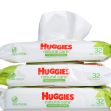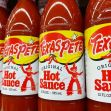A federal judge has ruled that Kraft Heinz must face a proposed class action lawsuit alleging that the company falsely advertised its iconic Kraft Mac & Cheese as free from artificial preservatives, a claim that plaintiffs argue is deceptive.
In her decision on Wednesday, U.S. District Judge Mary Rowland determined that consumers from Illinois, California, and New York had sufficiently alleged that Kraft’s Mac & Cheese contained synthetic citric acid and sodium phosphates, both of which could act as preservatives. The plaintiffs argue that Kraft’s labeling—stating the product contains "No Artificial Flavors, Preservatives or Dyes"—is misleading. To support their claims, the plaintiffs cited scientific studies and guidance from the U.S. Food and Drug Administration, which differentiate synthetic forms of citric acid from naturally derived ones.
"These allegations are enough to withstand a motion to dismiss," Judge Rowland wrote, signaling that the case could proceed toward trial. However, she agreed with Kraft Heinz on one point: the plaintiffs, having been made aware of the alleged misrepresentation, could not seek new labeling as they were not at risk of future harm from the product’s labeling.
In U.S. federal court, a motion to dismiss is typically evaluated under Rule 12(b)(6) of the Federal Rules of Civil Procedure, which allows a court to dismiss a case if the complaint "fails to state a claim upon which relief can be granted."
For cases involving fraud or misrepresentation, as in consumer lawsuits, Rule 9(b) requires an even higher standard of specificity. Plaintiffs must state “with particularity the circumstances constituting fraud or mistake,” describing the “who, what, when, where, and how” of the alleged fraudulent conduct.
U.S. District Judge Mary Rowland applied the motion to dismiss standard by evaluating whether the plaintiffs’ allegations plausibly showed that Kraft Heinz’s “no artificial preservatives” labeling on its macaroni and cheese could be misleading. The judge found that the plaintiffs plausibly alleged that the product contained synthetic citric acid and sodium phosphates, which could act as preservatives.
The judge’s decision in the Kraft Heinz case relies on the pleading standards set forth in two key Supreme Court cases: Bell Atlantic Corp. v. Twombly, 550 U.S. 544 (2007) and Ashcroft v. Iqbal, 556 U.S. 662 (2009).
In Twombly, the Supreme Court held that to survive a motion to dismiss, a complaint must allege enough facts to state a claim for relief that is “plausible on its face.” This requires more than “labels and conclusions” or a “formulaic recitation of the elements of a cause of action.” In the Kraft Heinz case, Judge Rowland applied this standard by examining whether the plaintiffs’ claims regarding the “no artificial preservatives” labeling were plausible given their allegations that Kraft’s product contained synthetic citric acid and sodium phosphates, which might act as preservatives.
In Iqbal, the Court elaborated on Twombly by stating that a claim has “facial plausibility” when the plaintiff pleads factual content that allows the court to reasonably infer that the defendant is liable for the alleged misconduct. This ruling emphasized that courts must conduct a two-pronged analysis: (1) disregard legal conclusions not supported by factual allegations, and (2) determine if the remaining factual allegations make a plausible claim. Judge Rowland, in the Kraft Heinz case, followed ’s approach by disregarding conclusory statements and focusing on whether the plaintiffs’ specific factual claims, such as references to FDA guidance and academic studies, allowed a reasonable inference of misleading labeling.
Judge Rowland concluded that these allegations were sufficient to allow the case to proceed, denying Kraft Heinz’s motion to dismiss. However, she agreed with Kraft on one point, ruling that the plaintiffs did not have standing to demand new labels, as they were already aware of the alleged deception and thus faced no future harm. This ruling reflects the standard by accepting the factual allegations as true for purposes of the motion and finding them plausible enough to warrant further examination through discovery.
Kraft Heinz had sought to dismiss the lawsuit, asserting that it used no artificial preservatives in its Mac & Cheese and that its labeling would not mislead a reasonable consumer. The company and its legal team did not immediately respond to requests for comment.
In a related case, a Miami federal judge dismissed a lawsuit alleging that Kraft Heinz misrepresented preparation times on its microwaveable Velveeta mac and cheese packaging last year.
The plaintiffs in the current lawsuit seek damages for fraud, unjust enrichment, and violations of consumer protection laws across multiple states.






